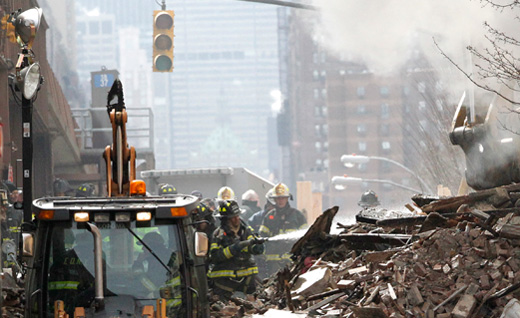
WASHINGTON (PAI) – America’s building trades unions made it clear here last week that rather than holding up progress, wherever they can the nation’s lawmakers should be about the business of rebuilding the nation’s infrastructure.
With GOP opposition keeping the federal government from moving on Obama-backed legislation that would create massive numbers of jobs, the unions, at their legislative conference here last week, mapped out specific proposals that could get the job done.
In addition, they called for an approach to infrastructure repair that would provide jobs for the women and minorities who increasingly are becoming the future of the nation’s construction industries.
Despite the lack of support for infrastructure repair from the House Republican majority, speakers at the legislative conference urged the more than 3,000 participants to lobby lawmakers for a renewed, greater federal role in upgrading the nation’s infrastructure including “green” factories, rebuilding of highways, addition of mass transit, and energy-saving street lights.
They hadn’t finished their deliberations here when tragedy and death struck in New York City, reminding the nation of the dire consequences of ignoring the need for the infrastructure repair they were talking about.
Rescue workers in New York are still combing through the rubble of two buildings destroyed this week by a probable gas explosion. The death toll in the explosions, believed to be caused by leaking gas pipes in the area, will probably rise to ten or more.
Building trades union members note that hundreds of thousands of miles of such pipes lie beneath the towns and cities of the nation and that a concerted effort to maintain, rebuild and replace them is necessary. “If you went to work in a serious way on these pipes all around the country you’d have jobs up the kazoo,” a leader in the Long Island Building Trades noted.
The union builders descended upon Washington March 9-12 just after President Obama had again demanded lawmakers pass a 4-year $302 billion highway-mass transit construction bill, paid for by closing corporate tax loopholes. The measure would provide tens of thousands of new jobs for construction workers, at a time when 1.1 million construction workers – one of every eight – are still jobless.
Not everything went smoothly, however, as the conflict between the Obama administration and the buildings trade unions on the issue of the Keystone pipeline boiled over again.
At a press conference construction union leaders even warned the president of “political consequences” if the president fails to OK the pipeline.
“The White House needs to worry about November,” said Sean McGarvey, president of the North American Building Trades Unions. “Our members are not going to stand idly by while people take food off their tables.”
While all unions say they understand the high level of concern for job creation voiced by the building trades unions they also agree that the infrastructure repair programs needed in the nation, programs that are opposed by or have been blocked by the GOP, would create far more jobs than the Keystone pipeline itself.
The National Nurses United, a union that opposes the pipeline, has called for “an immediate comprehensive study on the health impact on families and workers” of the pipeline, said Karen Higgins, the NNU’s co-president.
Rolanda Watson-Clark RN, who works at a clinic on Chicago’s South Side, said the problem was “more than just the oil. ” She said the burned ash residue from tar sands oil conversion, called petcoke, is piled up in huge mounds near her community. “We have dust storms off those piles,” she said. “The kids can’t go out and play in the parks and the ash is imbedded in their food and lungs. In December our clinic had to be evacuated because of the plumes of smoke.”
On the issue of hiring of minorities for infrastructure jobs, however, there was broad agreement among the building trades unions gathered last week in the nation’s capital.
Thousands of the workers hired should be women and minorities, said Martin Walsh, the former president of the Greater Boston Building and Construction Trades Council.
Not the least significant thing about Walsh’s remarks is that he is now the elected mayor of Boston. Walsh, elected in that city Jan. 6, touted his city’s Building Pathways Program that, he said, could be a model for the country. The program recruits and trains inner city minority youth and women for construction jobs.
The emphasis on youth is needed, Walsh said, because the average age of a building trades worker in a typical state, Wisconsin, is 59.
Walsh called the Boston program “a resource for both job creation and bridge-building” by construction unions to women and minorities. “We talk about poverty, achievement gaps and lack of opportunity,” he said. “We need to find ways to create new jobs and new opportunities to close the income gap. There’s only one group that can close that gap: organized labor.”
Photo: Reports say leaking gas pipes in the area likely caused the explosion that led to the deadly collapse of two buildings in East Harlem, New York this week. Rescuers working amid gusty winds, cold temperatures and billowing smoke pulled additional bodies from the rubble. Julio Cortez/AP













Comments